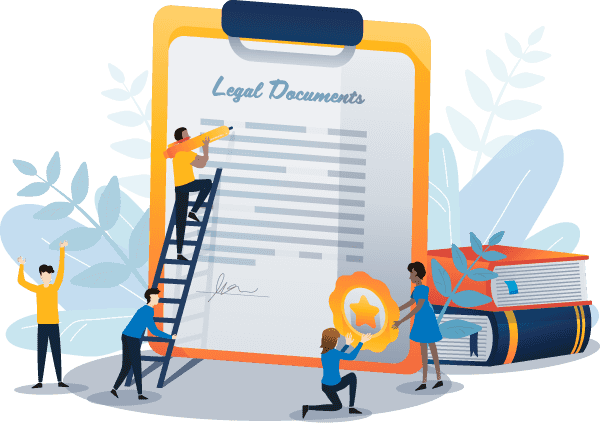Sydney-based lawyer currently working within the Civil Litigation, Dispute Resolution and Public Law division at the NSW Department of Communities & Justice. Prior experience in Commercial Litigation, Property, Banking and Finance. Formerly legal Intern at Lawpath.
A business plan and a business proposal are often confused as being the same thing. But in reality, they’re actually two different things and serve their own purposes. In this article, we’ll take you through the key differences between the two and how they’re structured. Additionally, we answer the ‘why’ behind having a business plan and business proposal. They both undeniably play important roles within a business setting, so keep reading to find out why that’s the case.
What’s a Business Plan?
To start with, a business plan aims to set a company up for success as long as the business is alive. It’s purpose is to record and convey crucial information. When your company passes the beginning stage and adapts, business growth follows. Therefore, this kind of plan will change over time and gets updated accordingly. It also outlines out your vision and goals for the company, along with how much it’ll cost to achieve those goals. Your business plan can also serve more than just one purpose. It can be used internally, but also by external parties such as investors, banks and suppliers to name a few.
Common Business Plan Structure
- A Summary of the Business: usually a one page overview of the business after the business plan has been finalised.
- Operations Plan: includes details such as the business structure, registration, location, staff and products or services.
- Marketing Plan: this contains how you plan to target your market. It has an analysis of the industry you’re entering (or already in), as well as your client base and competitors.
- Plans for the Business: sets out future plans or goals for the business. Some examples include a vision or mission statement and milestones.
- Finances: how you plan to finance your business, cost projections and estimated revenue.

Create your own Business Plan for free.
Customise, update and download our Business Plan.
Get startedWhat’s a Business Proposal?
Now, let’s move onto what a business proposal is. Here’s where we’ll see key differences between the two. A business proposal is a document that aims to persuade a potential client, such as an organisation or sole trader to buy your product or service. The aim of this is to strike a business deal or agreement, not put your business up for sale. It may also be unsolicited, which is different to the nature of a business plan. There’s also no set length of a business proposal. They can be as short or long as it needs to be, depending on what information a purchasing company or client wants.
Structure of a Business Proposal
Usually, they’re less strictly structured than a business plan. A business proposal can include things such as design, engineering details and project staffing. This can depend on what’s requested in a ‘Request For Information’ (RFI), a screening tool used to help buyers understand who and what’s involved. The acronym for requesting a business plan is a ‘Request For Proposal’ (RFP). Below we summarise what you can expect in a RFP, where the selling company or vendor, responds to the buying company. However, it’s important to note that this can also be used for non-requested proposals. The common elements of business proposals are:
- A cover letter and cover page.
- Executive summary.
- Table of contents containing what the plan will cover.
- Overview of the client’s problem or need.
- An action plan on how you plan to solve their problem.
- Your company’s qualifications.
- Schedule and costs.
- Terms and conditions.
Conclusions
In short, business plans and business proposals exhibit their own unique purposes. They both have important roles to play in the operations of day-to-day business. Having a business plan helps a company envision their goals and aspirations for the long-term, which allows them achieve their objectives. A business plan is a living document that’s subject to change in order to keep up with the business’ needs. On the contrary, a business proposal is a persuasive document that’s used to bring more money into the business through business deals and sales. Promoting existing goods and services characterise a business proposal, which in turn, grows partnerships. In short, a business’ success largely depends on its business plan and proposals for potential partnerships. Don’t hesitate to get in touch with a Lawpath consultant today for tailored business advice to get business smart.






